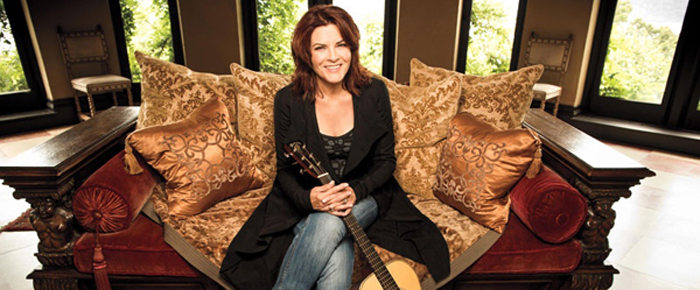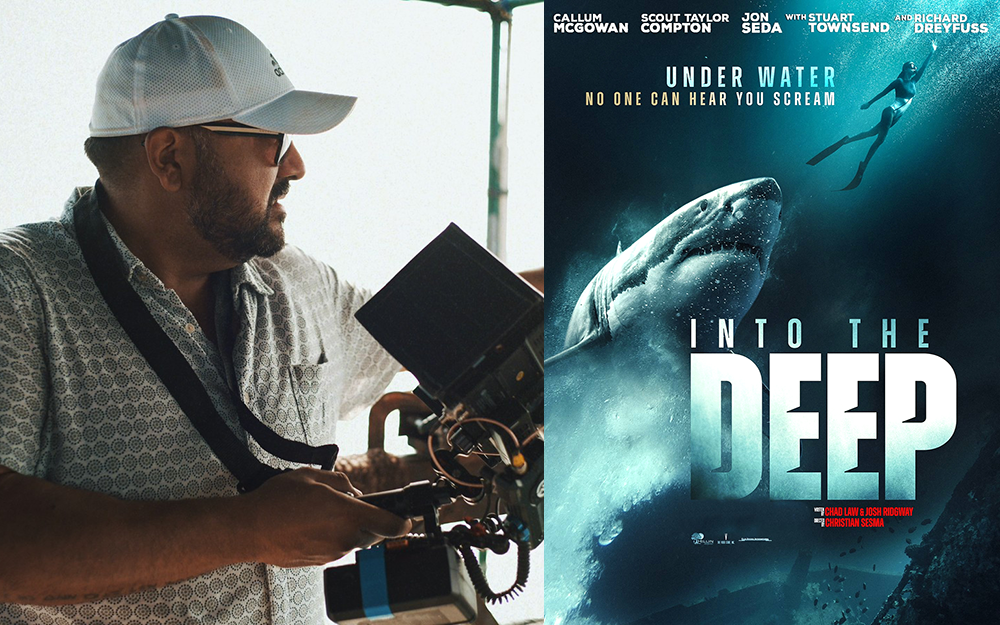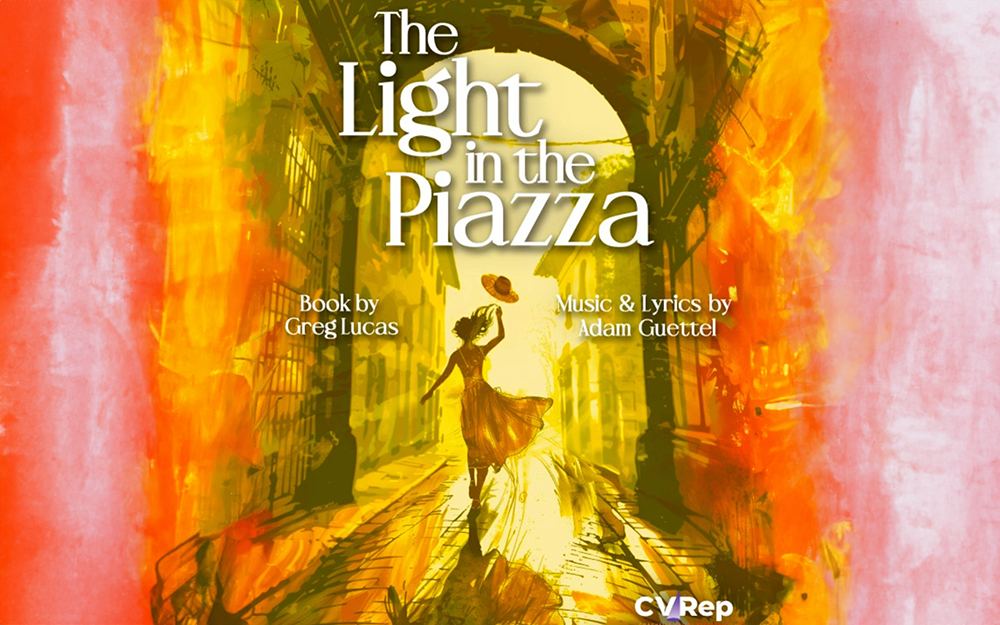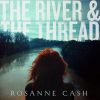
By Eleni P. Austin
Rosanne Cash was born into Country Music royalty. But she never traded on that pedigree to gain a foothold in the music industry.
The eldest daughter of Johnny Cash and his first wife, Vivian Liberto, Cash was born in Memphis Tennessee. She and her three younger sisters spent their formative years in the super non-Country locale of Ventura, California. Her parents divorced in 1966.
After graduating high school in the early ‘70s, Rosanne went on the road with her dad. She worked her way up from laundry duties to backing vocals and then featured vocalist.
She briefly abandoned her musical ambitions to study at Vanderbuilt University in Tennessee. She also enrolled in Lee Strasberg’s Theatre Institute in Los Angeles. But by 1978 she recorded a demo and signed a deal with the Ariola record label based in Munich Germany.
The Nashville establishment took notice, and by the time Cash was ready to record her second album, she was signed to her father’s label, Columbia. Three of the songs on that album, Right Or Wrong, were produced by Rodney Crowell, part of Emmylou Harris’ Hot Band.
Right Or Wrong was a huge success, spawning three hit singles. Cash and Crowell’s relationship shifted from professional to personal and the pair got married. Her next album, Seven Year Ache, was a commercial breakthrough yielding three #1 singles on the Country charts. It also managed the neat hat trick of crossing over to the Pop charts, reaching the Top 30.
Even though her fourth album, Somewhere InThe Stars, was a rush recording, (Cash was pregnant with her first child), the album still had two Top 10 singles. Her next two efforts, Rhythm & Romance in 1985 and King’s Record Shop in 1987 expanded her horizons exponentially.
The former was a savvy blend of Country and Pop featuring two #1 hits. The latter, a sharp meditation on Country traditions, produced four #1 songs, including her reinterpretation of “Tennessee Flat Top Box,” (a hit single for Johnny Cash in 1961).
As the ‘90s dawned, Rosanne Cash was at the top of her game professionally. But that took a toll on her personal life. Her marriage to Rodney Crowell was in trouble, a theme she explored thoroughly on her most personal (and critically acclaimed) album, Interiors.
By 1993, Cash was divorced and living in New York City with her three daughters. She chronicled this transition in The Wheel, her final album for the Columbia label.
Following a three year hiatus from music, (during that time, she married John Leventhal, producer of The Wheel, and published her first book, “Bodies Of Water,” a collection of short stories). She released the stripped down set, 10 Song Demo. It was another seven years before her next album appeared.
Rules Of Travel arrived in 2003 and it featured a lovely duet with her dad on “September When It Comes.” It was their final professional performance together.
That same year Rosanne’s stepmother, June Carter Cash died. Four months later Johnny Cash followed June. By 2005 Rosanne’s mother, Vivian Liberto also passed on. She channeled her pain and grief in a most public way, releasing the exquisite Black Cadillac in early 2006. The album was nominated for a Grammy in the Folk/Americana category.
The following year, Cash announced she had Chairi I Malformation, a rare brain condition. She underwent surgery, recovery and rehab. By 2009 she released The List.
Back when she was a teenager, Johnny Cash was afraid Rosanne only knew the songs that played on the radio. So he gave her a list of what he considered to be 100 essential American songs. Rosanne’s assignment was to learn them all. She did, but for the record, she pared it from 100 to 12 classic tracks.
After writing her first memoir, “Composed,” Rosanne Cash is back with The River & The Thread, her first album of new material in 8 years. The album opens with “A Feather’s Not A Bird.” This opaque travelogue, powered by rumbling bass, bottleneck guitar, violin and viola, contains the cryptic little couplet “A feather’s not a bird, the rain is not the sea/A stone is not a mountain, but a river runs through me.”
Cash explores her own tangled heritage on three tracks, “The Sunken Lands,” Etta’s Tune” and When The Master Calls The Roll.” Tethered by a loping, clip clop gait and beatific mandolin runs, “The Sunken Lands” takes its name from an area near Dyess Arkansas where an earthquake in 1811 actually sunk the land.
During the depression, as part of the New Deal, desperately poor families were given brand new cottages to live on and 40 acres to plant cotton fields. That is how Johnny Cash grew up, picking cotton alongside his siblings and parents. Three lines sharply distill the hardship…”The children cry, the work never ends there’s not a single friend.”
“Etta’s Tune” offers brighter recollections, as homage to Etta and Marshall Grant. Bassist Marshall Grant, along with guitarist Luther Perkins were known as the Tennessee Two, Johnny Cash’s original back-up band. They pretty much invented Cash’s patented “boom-chicka-boom” rhythm and toured with cash from 1954 until 1980. A sprightly, three chord lullabye, it’s a sweet farewell to Grant who passed in 2011.
“When The Master Calls The Roll,” doubles as the album’s most ambitious song. With an able lyrical assist from Rodney Crowell, Cash re-imagines The Civil War era through her ancestors’ eyes. (Family members fought on both sides).
Set to a tune that recalls old Celtic or Appalachian ballads, we follow the fates of Mary Ann Cash and William Cash. They meet and marry right before the outbreak of war… “My tender bride, the tides demand that I leave you with your mother/With my father’s rifle in one hand, and your locket in the other.” Naturally, it ends in heartbreak.
Cash has always seemed spiritual, if not exactly religious. So it’s no surprise that two songs, “Tell Heaven,” and “50,000 Watts” offer different paths for divine fulfillment.
Under a cloak of gritty guitar riffs and lush backing vocals, The former advocates prayer… “You don’t have to know what you will say/ The empty sky may never take our burdens, but something good will someday come our way.”
The former floats the idea that the shared experience of music can be more comforting than a sermon. The melody is warm and inviting, a wry backporch ramble anchored by Wurlitzer piano, upright bass and guitar. “We’ll live like kings, without any sin/ Redemption will come, just tune it all in…with 50,000 watts of common prayer.”
Other interesting tracks include the Jazzy travelogue “Modern Blue,” which somehow connects Memphis to Barcelona. The yearning “Long Way Home,” “World Of Strange Design,” which paraphrases a Scottish proverb, “They speak of my drinking, but never think of my thirst.”
The album closes with “Money Road.” An actual thoroughfare in the Mississippi Delta that includes Robert Johnson’s grave, the infamous Tallahatchie Bridge and the spot where Emmit Till was murdered, (for allegedly whistling at a white woman), igniting the Civil Rights movement. Rosanne ponders this odd confluence of events over a surprisingly rockin’ groove. John Leventhal’s use of electric sitar bathes the song in a “Betcha By Golly Wow” glow that recalls early ‘70s soul.
If you kick in the extra dough for the deluxe version of The River & The Thread, you are treated to three bonus tracks. There are two cover songs, Cash offers up a jaunty version of Townes Van Zandt’s “Two Girls” and a brooding interpretation of Jesse Winchester’s “Biloxi.” The final song is a Cash original, the sparkling “Your Southern Heart.”
Rosanne has always been the primary writer on her albums, occasionally collaborating with other musicians. Here she has co-written every song with husband/producer, John Leventhal. She provided the lyrics first, and he furnished the melodies.
Since her earliest efforts, Cash has blurred the lines between Country, Rock and Folk music. The River & TheThread carries on in that proud tradition. Although Rosanne Cash respects her roots, she refuses to be defined by them.















































